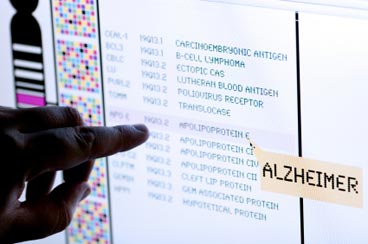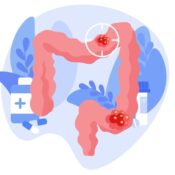Editor’s Note: In this web exclusive, bestselling medical journalist and writer Jean Carper features more ways science says can help you cut your odds of Alzheimer’s, memory decline, and other forms of dementia to accompany the steps profiled in her Nov/Dec 2010 Post article “Outsmarting Alzheimer’s.”
For nearly 40 years, as a medical and nutritional writer concentrating on the predicament of aging, I have closely followed the research findings on Alzheimer’s and age-related memory loss.
Yes, we may face an epidemic as baby boomers age, and yes, there may also be a cure in our future. But the fact is our susceptibility to Alzheimer’s, like heart disease, cancer, and diabetes, though somewhat at the mercy of genes, is also partly influenced by factors within our control.
We all can do some things to help our brains negotiate the hazards of advancing age:
Overcome Depression
It is a risk factor for Alzheimer’s, not a symptom.
So you are feeling depressed, and your cognitive functioning is not what it used to be. Is this something to worry about? Yes, say experts. They know that depression is common among older people with mild cognitive impairment and Alzheimer’s. But does depression bring on the disorder or is depression a subtle early sign of the underlying pathology of Alzheimer’s? Is it cause or consequence?
For ages, doctors thought depression emerged as a symptom after the disease had taken hold. Now, research suggests that the opposite is true—that depression is actually a risk factor that makes you more prone to develop Alzheimer’s in the first place. In short, warding off or treating depression may save you from impending brain disaster.
For example, UCLA researchers found that depressed people with mild memory problems were more likely to end up with Alzheimer’s than nondepressed people. The deeper the depression, the greater the probability.
In a French study, older women with mildly impaired mental agility who were also depressed were twice as likely to progress to Alzheimer’s. Moreover, if you are depressed, you are likely to develop Alzheimer’s at an earlier age, according to new University of Miami findings.
Robert S. Wilson, PhD, a neuropsychologist at the Rush Alzheimer’s Disease Center in Chicago, theorizes that being depressed weakens the brain’s “neural reserve,” its ability to tolerate the pathology that comes with Alzheimer’s. In short, he says, depression changes the brain in distinctive ways that undermine its normal resistance to the disease.
The clear message: If you’re depressed, you are more apt to develop Alzheimer’s, and at an earlier age, especially if you already have age-related memory problems.
What to do? Do not let depression go untreated, especially if you already notice memory problems. Drugs, including antidepressants, and other therapies, such as exercise, can make a difference. UCLA investigators also found that Aricept (donepezil), an Alzheimer’s drug, significantly delayed the progression from mild memory problems to Alzheimer’s in depressed persons.
Find Good Information
The Alzheimer’s Association is a national nonprofit organization with local chapters and a website offering extensive information on the disease. Be sure to check out its excellent interactive tour of the brain, which shows how the brain works and how Alzheimer’s destroys it. For the brain tour, click on “Alzheimer’s Disease,” then “Brain Tour.” It’s available in several different languages.
The Alzheimer Research Forum is a very lively and well-written website that post comments from both leading authorities on Alzheimer’s and the general public. It reports that the latest research, carries discussions among experts, and gives full exposure to innovate, controversial, and offbeat theories and ideas. It’s the place to go to find out the complete range of what top researchers in the field are thinking and doing.
Excerpted from the book 100 Simple Things You Can Do to Prevent Alzheimer’s and Age-Related Memory Loss by Jean Carper. Copyright © 2010 by Jean Carper. Reprinted with permission of Little, Brown and Company.
Become a Saturday Evening Post member and enjoy unlimited access. Subscribe now




Comments
This comment is about a brother of mine. He is taking an antidepressant drug–ventafaxine HCL 150mg er tab—one tablet daily. He is 80 years old. Still active, but forgets things, and has to write down things he has to do. He had open heart surgury at the age of 75. Does this mean he is will get Alzheimer’s?